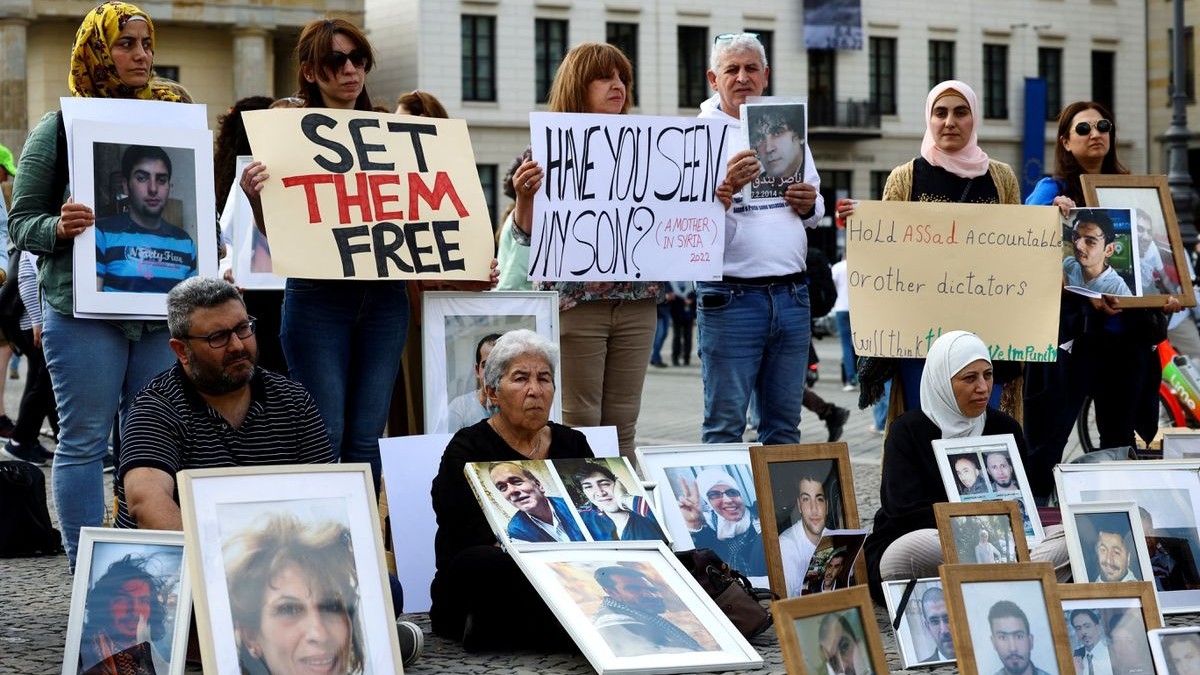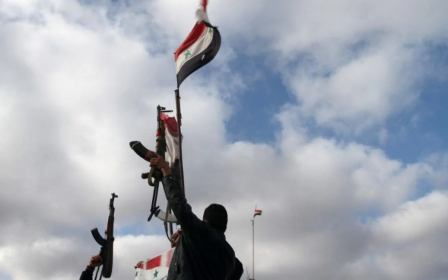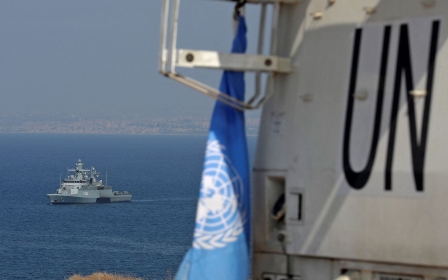Syria rights monitor obtains death certificates of hundreds of detainees in Assad prisons

The Syrian Network for Human Rights (SNHR) has obtained hundreds of death certificates of people who were forcibly disappeared by the Bashar al-Assad government.
In a report released on Tuesday, the UK-based rights group described the Syrian government's method to notify families that their loved ones had died without resorting to official channels.
Documents obtained by the SNHR from whistleblowers within government departments reveal the death certificates of some 547 people who were held in government detention centres and which have been issued since 2017.
The documents in question were issued without an official letterhead or other identifying markers, suggesting that the government aimed to create a system of plausible deniability of how people had died in its custody.
New MEE newsletter: Jerusalem Dispatch
Sign up to get the latest insights and analysis on Israel-Palestine, alongside Turkey Unpacked and other MEE newsletters
'It is hard to accept that our loved ones have died until we receive their body or know where they are buried'
- Maimouna al-Ammar, Syrian Families for Freedom
"It is hard to accept that our loved ones have died until we receive their bodies or know where they are buried," Maimouna al-Ammar, from the Syrian Families for Freedom, told Middle East Eye.
"For us, the issuance of death certificates does not mean a confirmation on the fate of the forcibly disappeared persons because it does not correspond to the international standards of the procedure."
The Syrian Families for Freedom has been campaigning for years to find out the fate of hundreds of thousands of Syrians who have been detained or disappeared, the majority of whom by the Syrian government.
In the report, SNHR said that ordinary Syrians learn about the existence of such certificates from word of mouth from people visiting civil register offices to conduct regular transactions and file paperwork.
Since the beginning of 2022, with the help of Syrians inside the country, SNHR has been collecting the death certificates of prominent individuals that died at the hands of the government.
"Even if the certificates are true, the various causes of death put down by the regime, like heart disease, does not absolve it of responsibility," said Ammar.
Most of the families are unaware of the status of their loved ones, including prominent activists who had led the uprising against the Syrian government, as well as women and children.
"My husband was one of the people who were detained," said Ammar, before describing the way families often find out about the fate of a detained loved one.
"He called the family of a detainee who was in a very bad state and whom he had witnessed being taken away unconscious and believed to be dead."
'Horrifying way to find out'
Earlier this year, a defector from the Syrian military revealed "the horrors" inflicted on captives at one of the most notorious detention facilities in Syria, the Aleppo central prison.
The documents sent to the opposition-linked Zaman al-Wasl media outlet included photos of prisoners being assaulted, abused, tortured and killed, revealing that up to 800 civilians may have been killed in the Aleppo central prison complex.
The latest revelations by SNHR "places human faces, names, and stories for a small sample from the estimated 130,000 forcibly disappeared Syrians by the Assad regime," said Zaher Sahloul, a member of the American Coalition for Syria.
"It is a horrifying way for families to find out that their son or daughter have been tortured to death," he added.
'It speaks for the lack of any humanity and complete disregard of the dignity of the Syrian people within the regime system'
- Zaher Sahloul, American Coalition for Syria
"It speaks for the lack of any humanity and complete disregard of the dignity of the Syrian people within the regime system. It is another proof that the Syrian regime could not and should not be rehabilitated."
In August 2013, a military defector, code-named Caesar, smuggled 53,275 photographs out of Syria that showed at least 6,786 detainees who died in detention. The photographs later proved to be instrumental in a court case to prosecute a former Assad official.
In June 2018, the German Federal Court of Justice issued an arrest warrant against Jamil Hassan, who headed the Syrian air force intelligence service until 2019, based on those files.
Many victims' families seek justice through international avenues.
"There is no mechanism inside Syria for the families of the victims to hold the regime accountable," said Sahloul.
"The only way to hold the regime accountable is to refer it to the international criminal court or establish a special court for that purpose.
"Without the leadership of the US administration, which has nearly completely and immorally ignored the Syrian crisis, justice for the tens of thousands of Syrian families has to wait."
Middle East Eye delivers independent and unrivalled coverage and analysis of the Middle East, North Africa and beyond. To learn more about republishing this content and the associated fees, please fill out this form. More about MEE can be found here.




